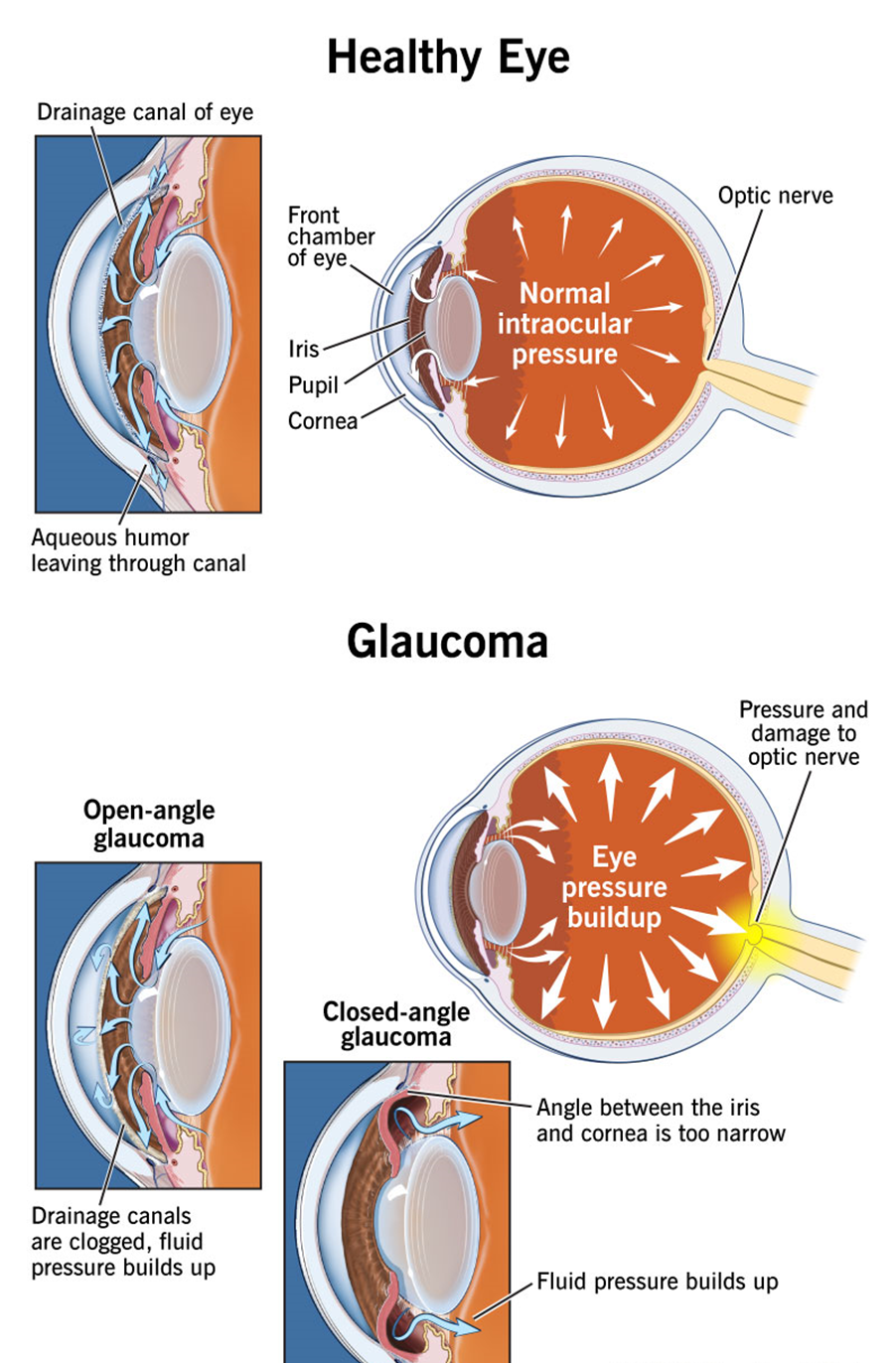A client asks the nurse about a prescription for the antihistamine, diphenhydramine (Benadryl). The nurse should teach the client that this medication is contraindicated in clients who have a history of which condition?
Asthma
Hypertension
Glaucoma
Depression
The Correct Answer is C
Choice A reason: Asthma
Diphenhydramine is an antihistamine that can cause drying of the airways and thickening of bronchial secretions, which might exacerbate asthma symptoms. However, it is not strictly contraindicated in asthma patients. Instead, caution is advised, and it should be used under medical supervision if necessary.
Choice B reason: Hypertension
While diphenhydramine can cause mild increases in blood pressure due to its anticholinergic effects, it is not contraindicated in patients with hypertension. Patients with hypertension should use it cautiously and under medical advice, but it is not an absolute contraindication.
Choice C reason: Glaucoma
Diphenhydramine is contraindicated in patients with glaucoma, particularly closed-angle glaucoma. This is because diphenhydramine has anticholinergic properties that can increase intraocular pressure, potentially worsening the condition. Patients with glaucoma should avoid using diphenhydramine to prevent complications related to increased eye pressure.

Choice D reason: Depression
Diphenhydramine is not contraindicated in patients with depression. However, it can cause drowsiness and sedation, which might affect mood and energy levels. Patients with depression should use it cautiously and under medical supervision, but it is not an absolute contraindication.
Nursing Test Bank
Naxlex Comprehensive Predictor Exams
Related Questions
Correct Answer is A
Explanation
Choice A Reason:
Cranial nerve V is the trigeminal nerve, which has both motor and sensory functions:Motor function: The nurse can assess this by asking the client to clench their teeth while palpating the masseter and temporalis muscles for strength.Sensory function: The nurse can assess this by lightly touching the client's face in different areas (forehead, cheeks, and jaw) with a cotton ball or sharp/dull object to check for sensation.
Choice B Reason:
Asking the client to identify scented aromas is a method used to assess cranial nerve I (Olfactory), not cranial nerve V. Cranial nerve V (Trigeminal) is assessed by testing facial sensation and motor functions such as chewing.

Choice C Reason:
Asking the client to read a Snellen chart is a method used to assess cranial nerve II (Optic), which is responsible for vision. This method does not assess cranial nerve V
Choice D Reason:
Asking the client to raise his eyebrows is a method used to assess cranial nerve VII (Facial), which controls facial expressions. This method is not used to assess cranial nerve V.
Correct Answer is D
Explanation
Choice A Reason:
Urinary tract infections (UTIs) are typically caused by bacteria entering the urinary tract. While strict bed rest can increase the risk of UTIs due to factors like catheter use and reduced mobility, the use of an incentive spirometer does not directly prevent UTIs. Instead, preventing UTIs involves maintaining good hygiene, ensuring adequate fluid intake, and, if necessary, using catheters properly.
Choice B Reason:
Deep vein thrombosis (DVT) is a condition where blood clots form in the deep veins, usually in the legs. This can occur due to prolonged immobility, such as strict bed rest after surgery. Preventing DVT involves measures like using compression stockings, administering anticoagulant medications, and encouraging leg exercises. An incentive spirometer, which is used to improve lung function, does not directly prevent DVT.
Choice C Reason:
Constipation is a common issue for patients on bed rest due to reduced physical activity and changes in diet. Preventing constipation involves ensuring adequate hydration, providing a high-fiber diet, and encouraging as much physical activity as possible. The use of an incentive spirometer, which focuses on respiratory function, does not directly address constipation.
Choice D Reason:
Atelectasis is a condition where the alveoli in the lungs collapse, leading to reduced or absent breath sounds in the affected areas. This is a common postoperative complication, especially in patients on strict bed rest, due to shallow breathing and reduced lung expansion. The use of an incentive spirometer encourages deep breathing and helps to keep the alveoli open, thereby preventing atelectasis. This is why the incentive spirometer is an essential tool for postoperative respiratory care.
Whether you are a student looking to ace your exams or a practicing nurse seeking to enhance your expertise , our nursing education contents will empower you with the confidence and competence to make a difference in the lives of patients and become a respected leader in the healthcare field.
Visit Naxlex, invest in your future and unlock endless possibilities with our unparalleled nursing education contents today
Report Wrong Answer on the Current Question
Do you disagree with the answer? If yes, what is your expected answer? Explain.
Kindly be descriptive with the issue you are facing.
